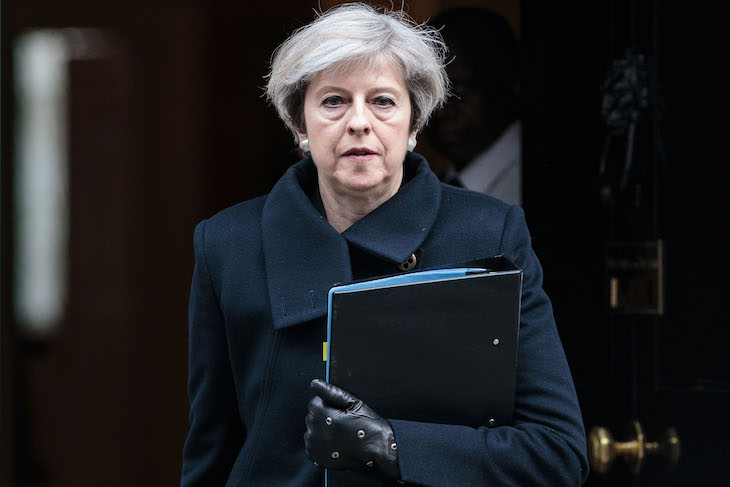Following last night’s reports of open plotting against Theresa May, her critics in the Conservative party seem rather keen to row back on any suggestion that they really are planning a coup. Iain Duncan Smith, for instance, told BBC Radio 5 Live that he ‘would stamp on’ any attempted challenge, and that the talk of a plot was ‘totally overblown’. Others have pointed out that there were notable senior absences from the European Research Group’s meeting last night, including Bernard Jenkin, David Davis, Boris Johnson and Jacob Rees-Mogg.
Of course, even if those big names had been present and plotting merrily away, their plans would have been seriously undermined by the easy leaks that came from the meeting. Perhaps some present felt they would get more in the way of concessions on Brexit from the Prime Minister if they levelled threats at her. Or perhaps there were MPs there who were rather less invested in this plotting than their colleagues. If it’s the latter, then the ERG have a problem: they can’t consider their meetings private any more, which means they will end up forming a subgroup of people who really trust one another.
It was also striking that PMQs was not dominated with backbench criticism of the Prime Minister. Indeed, the two questions on Europe came from loyal backbenchers Chris Philp and Alan May, rather than the Andrea Jenkyns of this world. After the session, May’s spokesman said that she would fight any vote of confidence in her, and pointed journalists to that Iain Duncan Smith interview to show that any plot isn’t very serious.
It is true, though, that talk in the Conservative party is seriously turning to the question of who will succeed Theresa May, and when that might happen. At present, she is safe thanks largely to the support of the 1922 Committee and the splits in the plotters. But neither of those things are permanent.







Comments